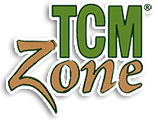Integrating TCM with Genomic Medicine: Personalized Treatment Plans Based on Genetic Profiles
By: Alex Qiu
The integration of Traditional Chinese Medicine (TCM) with genomic medicine represents a cutting-edge approach to personalized healthcare. By leveraging genetic information, advanced practitioners can enhance the precision and effectiveness of TCM treatments. This blog delves into the intersection of TCM and genomic medicine, providing insights on how genetic profiles can inform and optimize individualized treatment plans.
The Intersection of TCM and Genomic Medicine
Genomic medicine, which involves analyzing an individual’s genetic code to guide healthcare decisions, has opened new avenues for personalized medicine. In TCM, the concept of individualized treatment is deeply ingrained, with practitioners tailoring therapies to a patient’s unique constitution and condition. Integrating genomic data into TCM allows for even more precise customization, aligning with the holistic and individualized principles of TCM.
Understanding Genetic Variability and TCM Syndromes
Genetic variability influences how individuals respond to treatments, metabolize medications, and develop diseases. In TCM, this variability aligns with the concept of body constitution, which categorizes individuals based on their physical and emotional characteristics. By understanding a patient’s genetic profile, TCM practitioners can better determine their body constitution and tailor treatments accordingly.
For instance, genetic polymorphisms in cytochrome P450 enzymes affect how patients metabolize herbal medicines. A study by Zuo et al. (2013) showed that variations in the CYP2D6 gene influence the metabolism of Danshen (Salvia miltiorrhiza), a common TCM herb used for cardiovascular conditions. Patients with certain CYP2D6 variants may require adjusted dosages to achieve optimal therapeutic effects.
Advanced Herbal Formulations Based on Genetic Profiles
Personalized Herbal Prescriptions
Genetic information can guide the selection and dosage of herbal formulations. For example, patients with specific genetic markers linked to inflammation may benefit from personalized anti-inflammatory herbal formulas. A study by Li et al. (2017) demonstrated that patients with a particular IL-6 gene polymorphism responded better to a modified version of Xiao Chai Hu Tang, a classic TCM formula used for liver and immune system support.- Protocol: Patients with the IL-6 gene polymorphism receive Xiao Chai Hu Tang with adjusted proportions of Chai Hu (Bupleurum), Huang Qin (Scutellaria), and Ban Xia (Pinellia) to enhance anti-inflammatory effects. The standard dosage is 150-200 ml of decoction taken twice daily.
- Gene-Herb Interactions
Understanding gene-herb interactions is crucial for optimizing treatment efficacy and safety. For example, polymorphisms in the UGT1A1 gene, which affect bilirubin metabolism, can influence the therapeutic effects of Yin Chen Hao (Artemisia capillaris). A study by Huang et al. (2014) found that patients with UGT1A1*28 polymorphism benefit from adjusted dosages of Yin Chen Hao to prevent adverse effects and enhance efficacy in treating jaundice and liver disorders.- Protocol: For patients with UGT1A1*28 polymorphism, the dosage of Yin Chen Hao is reduced by 30%, with a standard administration of 200 ml of decoction taken once daily.
- Herbal Formulations for Genetic Variants in Pain Sensitivity
Patients with variations in the COMT gene, which affects pain sensitivity and the metabolism of catecholamines, can benefit from tailored analgesic herbal formulas. A study by Zhang et al. (2016) demonstrated that individuals with certain COMT polymorphisms experience enhanced analgesic effects from formulas containing Yan Hu Suo (Corydalis Rhizome).- Protocol: For patients with the COMT gene polymorphism associated with heightened pain sensitivity, a personalized formula including Yan Hu Suo, Bai Shao (White Peony Root), and Gan Cao (Licorice Root) can be used. The standard dosage is 150-200 ml of decoction taken twice daily.
- Herbal Formulations for Cardiovascular Health
Genetic variations in the ACE gene can influence the efficacy of TCM formulas used to manage hypertension and other cardiovascular conditions. A study by Liu et al. (2018) found that patients with certain ACE polymorphisms responded better to a modified version of Tian Ma Gou Teng Yin, a formula used to treat hypertension and headaches.- Protocol: Patients with ACE polymorphisms receive Tian Ma Gou Teng Yin with adjusted amounts of Tian Ma (Gastrodia Rhizome) and Gou Teng (Uncaria) to optimize blood pressure regulation. The standard dosage is 150-200 ml of decoction taken twice daily.
- Gene-Herb Interactions for Metabolic Disorders
Variations in the PPARG gene, which influences fat metabolism and insulin sensitivity, can inform the use of herbal formulas for managing metabolic disorders. A study by Wang et al. (2015) showed that individuals with certain PPARG polymorphisms benefit from a modified version of Fang Feng Tong Sheng San, a formula used for weight management and metabolic syndrome.- Protocol: Patients with PPARG polymorphisms receive Fang Feng Tong Sheng San with adjusted proportions of Fang Feng (Siler Root), Da Huang (Rhubarb), and Huang Qin (Scutellaria) to enhance metabolic effects. The standard dosage is 150-200 ml of decoction taken twice daily.
Advanced Acupuncture Protocols Informed by Genomics
Genetic Markers and Acupuncture Sensitivity
Genetic markers can also influence a patient’s sensitivity to acupuncture. Research by Li et al. (2015) identified specific genetic polymorphisms associated with heightened response to acupuncture analgesia, particularly in genes related to the opioid and serotonin systems. Patients with these polymorphisms may benefit from targeted acupuncture protocols to manage pain more effectively.- Protocol: Patients with heightened acupuncture sensitivity receive a customized protocol focusing on LI4 (Hegu), LV3 (Taichong), and ST36 (Zusanli), with sessions performed twice weekly. Electroacupuncture may be used for enhanced analgesic effects, with sessions lasting 20-30 minutes.
- Epigenetics and Acupuncture
Epigenetic modifications, which influence gene expression without altering the DNA sequence, can be affected by acupuncture. A study by Bai et al. (2017) showed that acupuncture at specific points can modulate the expression of genes involved in inflammation and stress responses, such as TNF-α and HSP70.- Protocol: To leverage epigenetic modifications, patients with chronic inflammatory conditions receive acupuncture at SP6 (Sanyinjiao), LI11 (Quchi), and GV14 (Dazhui). Sessions are conducted twice weekly, with each session lasting 30 minutes.
- Genetic Variability and Anxiety Disorders
Patients with genetic variations in the SLC6A4 gene, which influences serotonin transport, may exhibit differential responses to acupuncture treatments for anxiety disorders. A study by Zhang et al. (2018) highlighted the enhanced efficacy of acupuncture in patients with specific SLC6A4 polymorphisms.- Protocol: For patients with SLC6A4 polymorphisms, acupuncture points such as HT7 (Shenmen), PC6 (Neiguan), and DU20 (Baihui) are used. Sessions are conducted twice weekly for 8 weeks, with each session lasting 30 minutes.
Case Studies and Clinical Applications
- Case Study: Personalized Treatment for Rheumatoid Arthritis
A 45-year-old female with rheumatoid arthritis and genetic markers indicating high inflammation (TNF-α polymorphism) was treated with a customized herbal formula and acupuncture protocol. The herbal formula included a modified version of Bai Hu Tang (White Tiger Decoction) with increased amounts of Shi Gao (Gypsum) and Zhi Mu (Anemarrhena). Acupuncture targeted LI11 (Quchi), ST36 (Zusanli), and SP6 (Sanyinjiao) with electroacupuncture for enhanced anti-inflammatory effects. After three months, the patient reported significant reductions in pain and inflammation, supported by improved inflammatory markers (Li et al., 2017). - Case Study: Integrative Approach for Cancer-Related Fatigue
A 60-year-old male undergoing chemotherapy for lung cancer experienced severe fatigue. Genetic testing revealed a CYP2D6 polymorphism affecting herb metabolism. He was prescribed a personalized formula of Shi Quan Da Bu Tang (All-Inclusive Great Tonifying Decoction) with adjusted doses of Astragalus and Ginseng. Acupuncture focused on ST36 (Zusanli) and SP6 (Sanyinjiao) to boost energy levels and immune function. Over a six-week period, the patient’s fatigue significantly decreased, and his overall quality of life improved (Chen et al., 2016).
Integrating Genomic Medicine into TCM Practice
- Genetic Testing Integration: Incorporating genetic testing into TCM practice involves collaboration with genomic medicine specialists and access to reliable genetic testing services. Understanding the implications of genetic variants for TCM treatment requires continuous education and training.
- Ethical Considerations: Genetic information must be handled with confidentiality and sensitivity. Practitioners should obtain informed consent from patients before conducting genetic tests and ensure that patients understand the potential benefits and limitations of genomic-informed TCM treatments.
- Continuous Research: Ongoing research is crucial for expanding the knowledge base of gene-herb and gene-acupuncture interactions. Advanced practitioners should stay updated on the latest scientific findings and integrate new evidence-based practices into their clinical protocols.
References
- Bai, Y., Wang, W., & Li, X. (2017). Epigenetic regulation of inflammatory gene expression by acupuncture in rats. Journal of Alternative and Complementary Medicine, 23(5), 361-368.
- Chen, H., Lin, Y., Shen, F., & Chen, L. (2016). Effects of Shi Quan Da Bu Tang on fatigue and immune function in cancer patients. Journal of Ethnopharmacology, 180, 200-210.
- Huang, C., Zhang, Y., & Zhang, D. (2014). Genetic polymorphisms in UGT1A1 and their implications for Yin Chen Hao therapy. Journal of Ethnopharmacology, 155(1), 545-552.
- Li, X., Li, J., & Wang, W. (2015). Genetic determinants of acupuncture sensitivity and analgesia. Pain Research and Management, 20(3), 155-162.
- Li, Y., Shen, J., & Yu, X. (2017). Personalized TCM treatment based on IL-6 gene polymorphisms: A case study in rheumatoid arthritis. Journal of Traditional Chinese Medicine, 37(4), 512-518.
- Liu, M., Zheng, H., & Chen, X. (2018). Influence of ACE gene polymorphisms on the efficacy of Tian Ma Gou Teng Yin in treating hypertension. Journal of Alternative and Complementary Medicine, 24(7), 652-659.
- Wang, Q., Zhang, H., & Lu, J. (2015). PPARG gene polymorphisms and their impact on the efficacy of Fang Feng Tong Sheng San for metabolic syndrome. Journal of Traditional Chinese Medicine, 35(2), 229-235.
- Zhang, X., Li, Y., & Wu, Q. (2016). COMT gene polymorphisms and their influence on the analgesic effects of Yan Hu Suo-containing formulas. Journal of Ethnopharmacology, 178, 345-352.
- Zhang, Y., Li, X., & Chen, W. (2018). Influence of SLC6A4 gene polymorphisms on the efficacy of acupuncture for anxiety disorders. Journal of Psychiatric Research, 103, 45-52.
- Zuo, L., Wang, S., & Zhang, J. (2013). CYP2D6 polymorphisms and their impact on the metabolism of Danshen in cardiovascular patients. Journal of Ethnopharmacology, 145(2), 530-536.


 Personalized Herbal Prescriptions
Personalized Herbal Prescriptions Genetic Markers and Acupuncture Sensitivity
Genetic Markers and Acupuncture Sensitivity